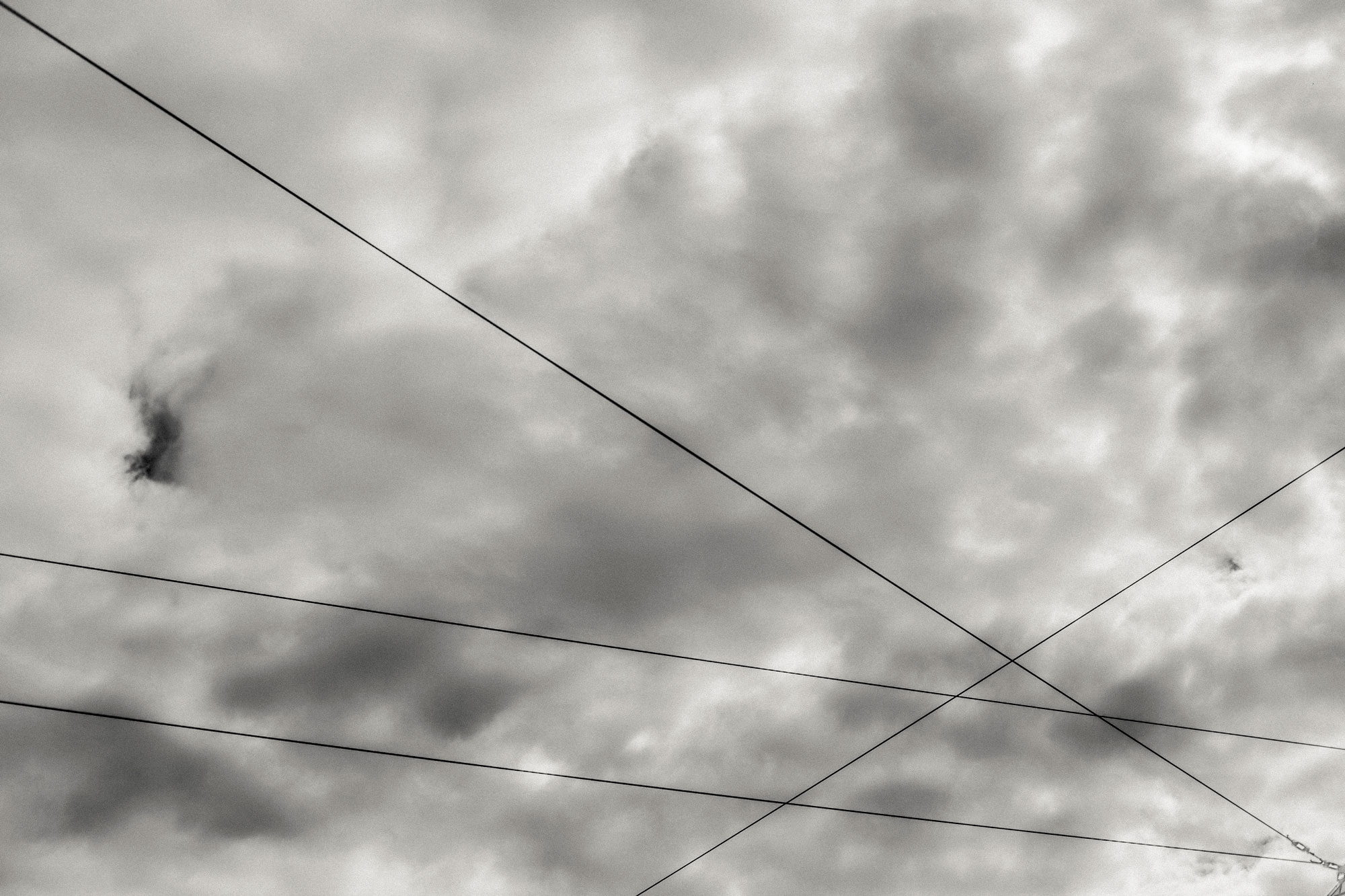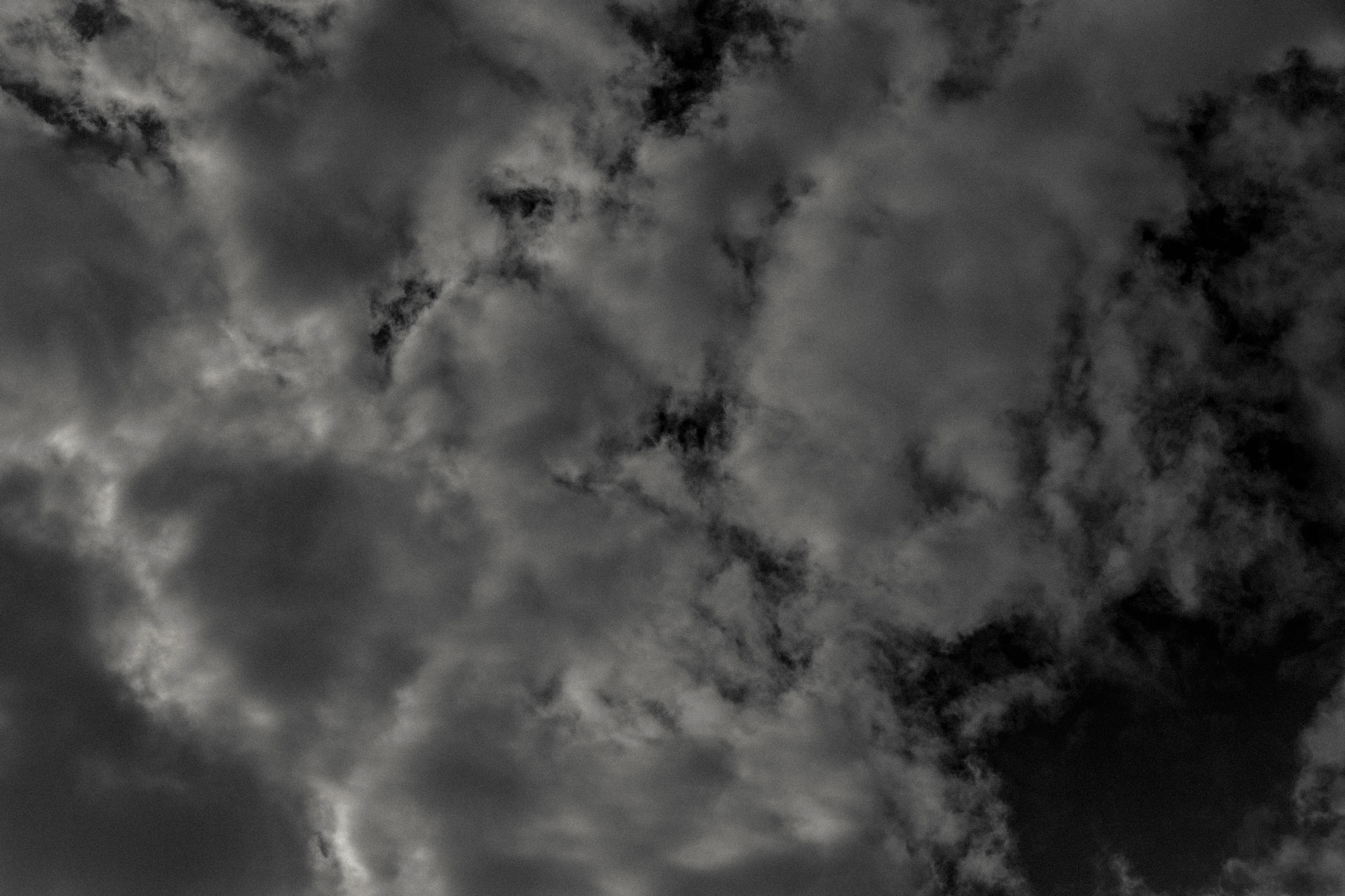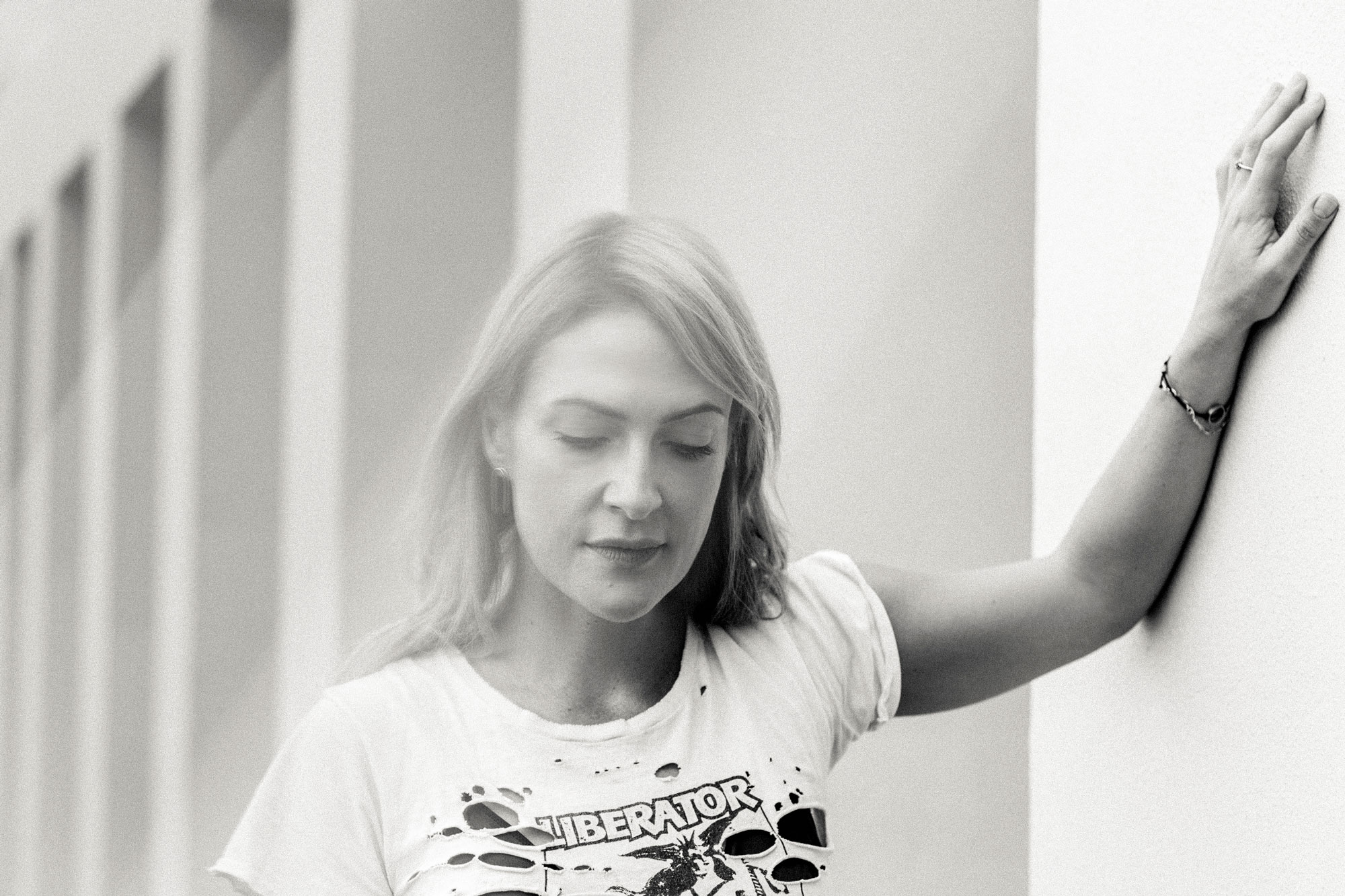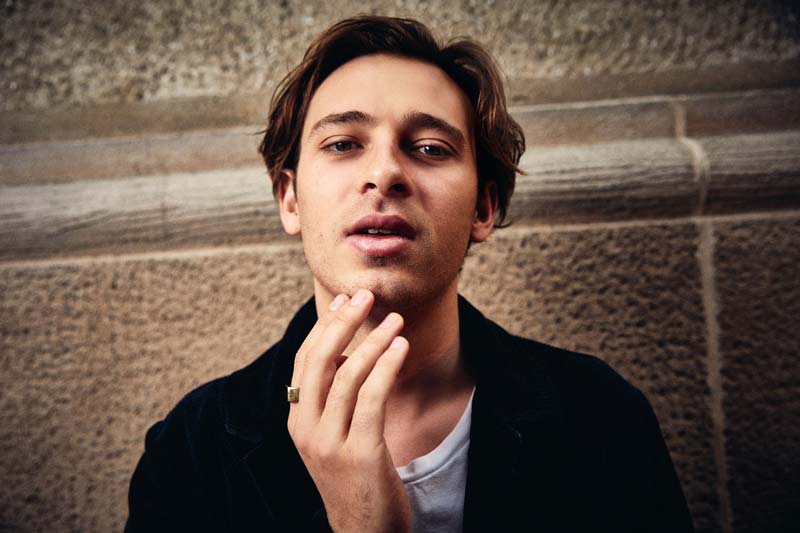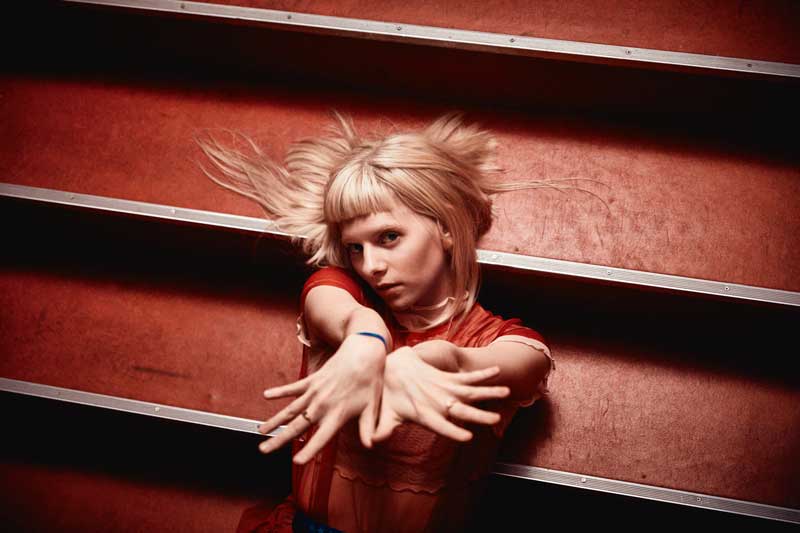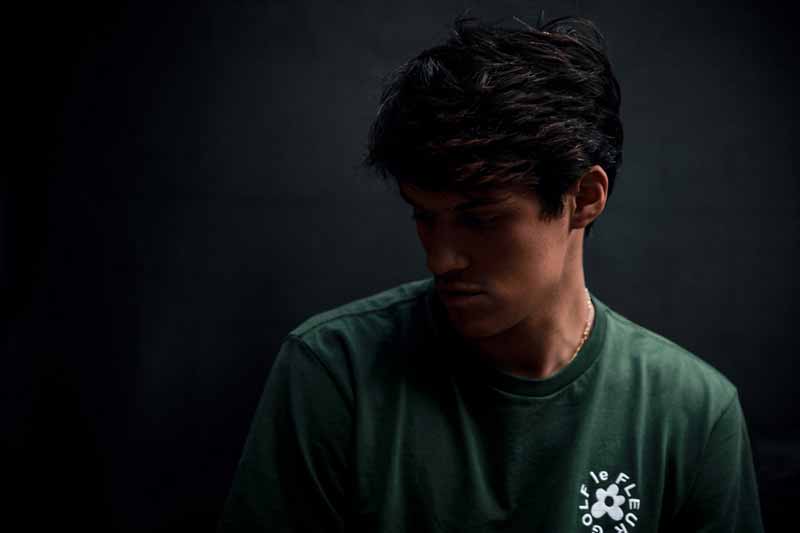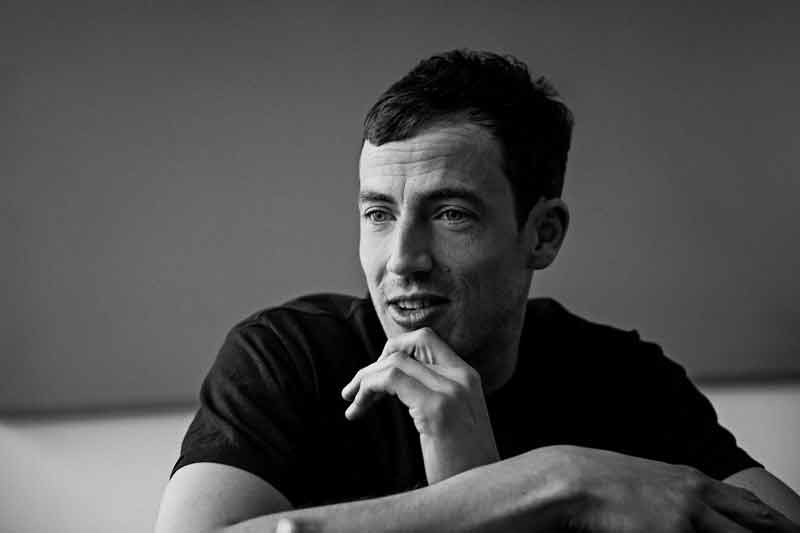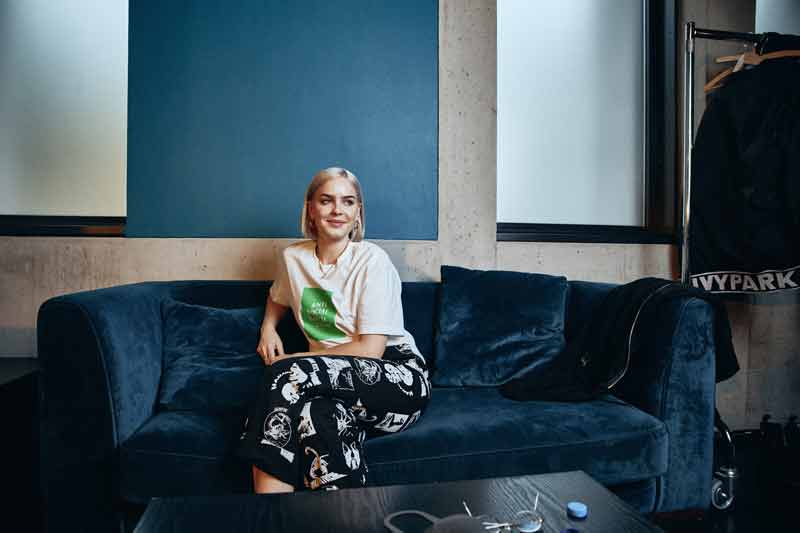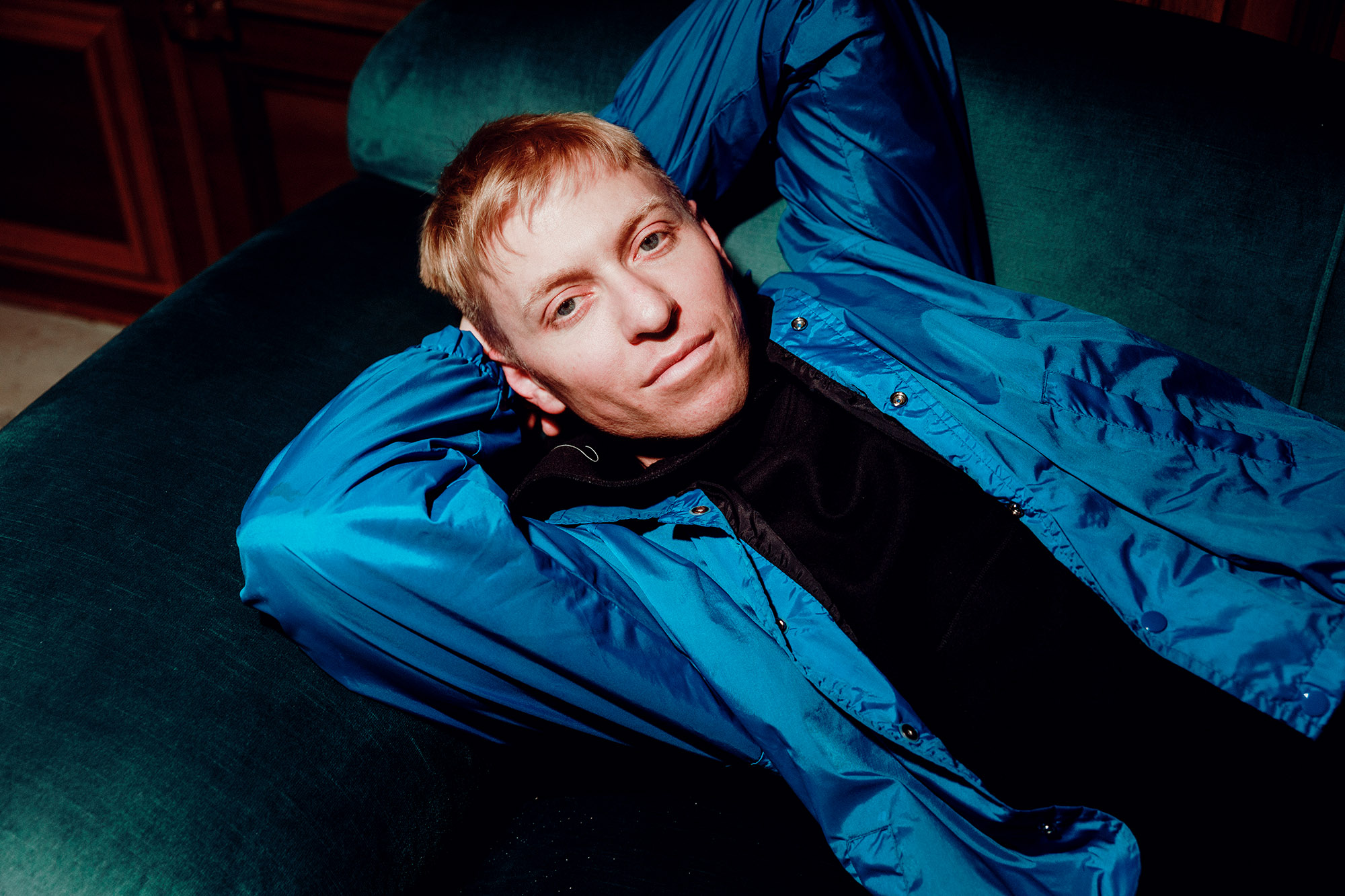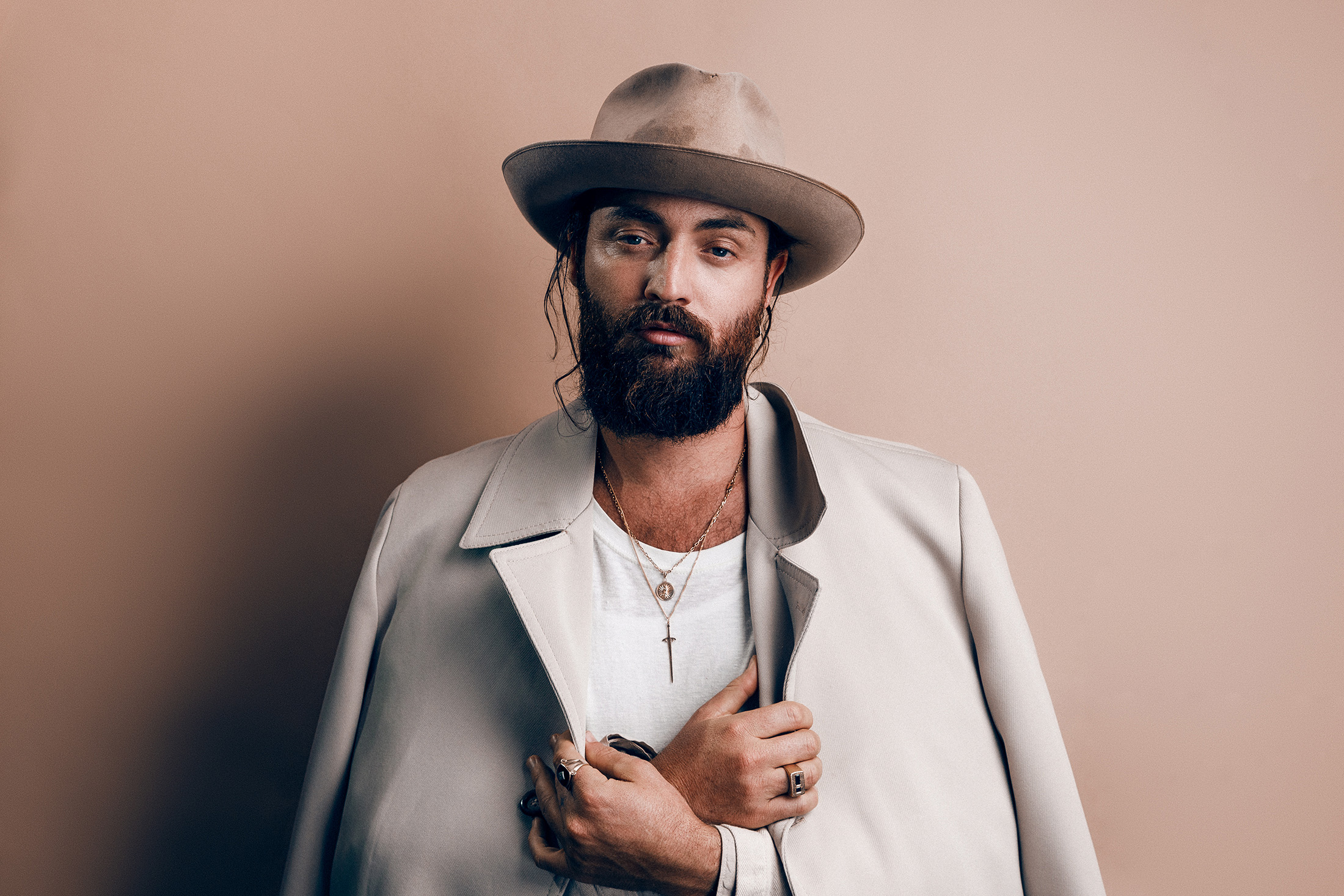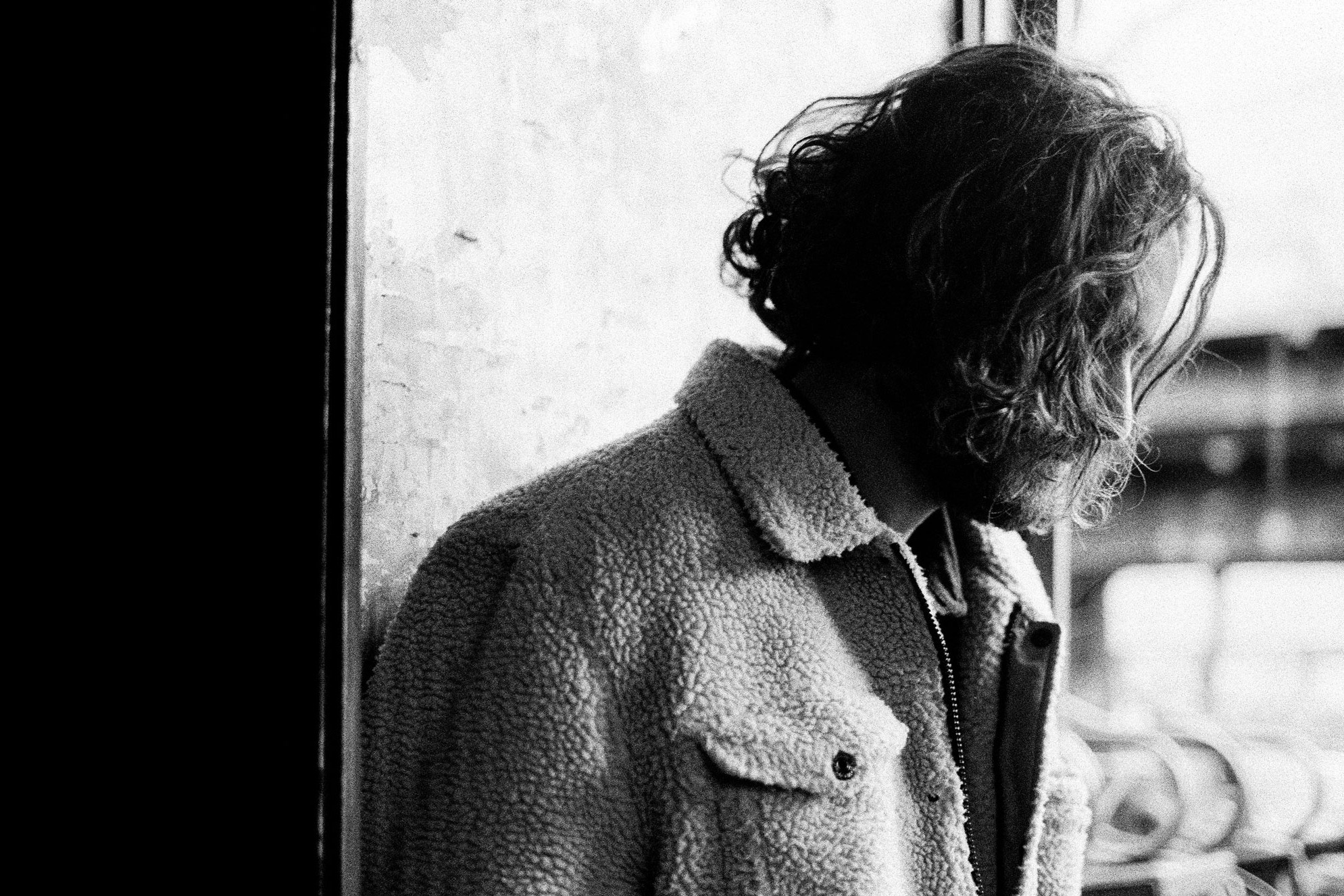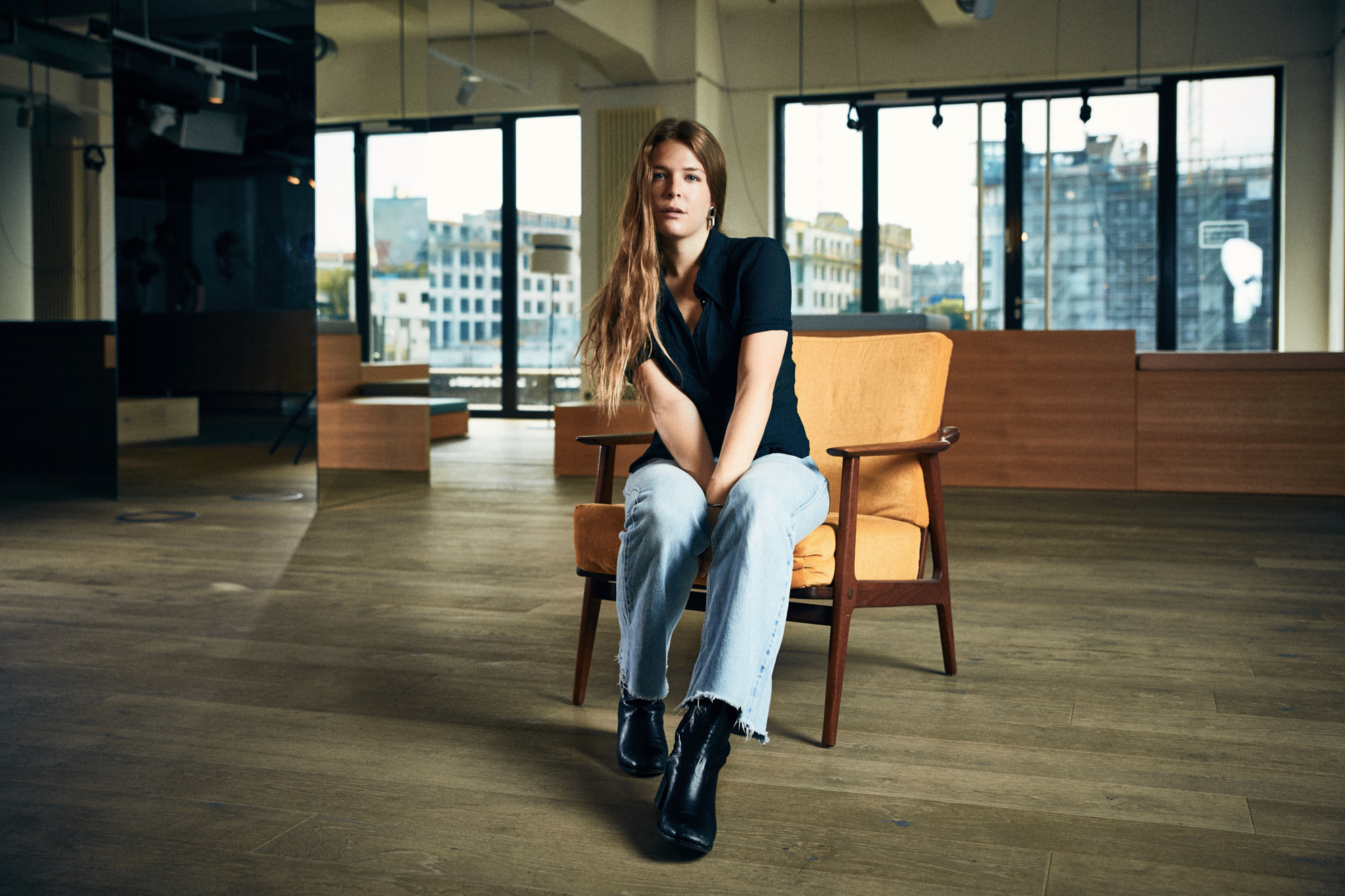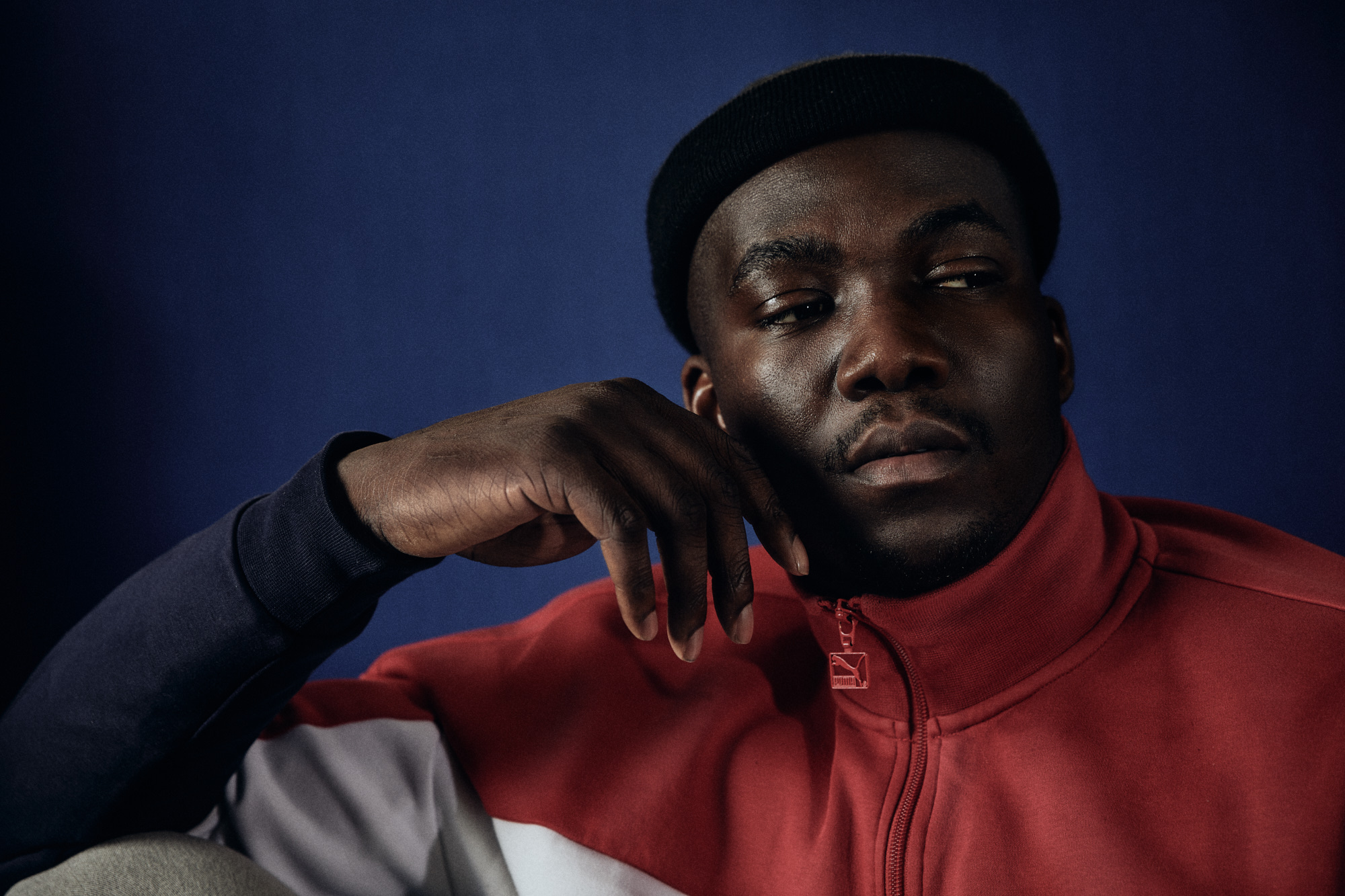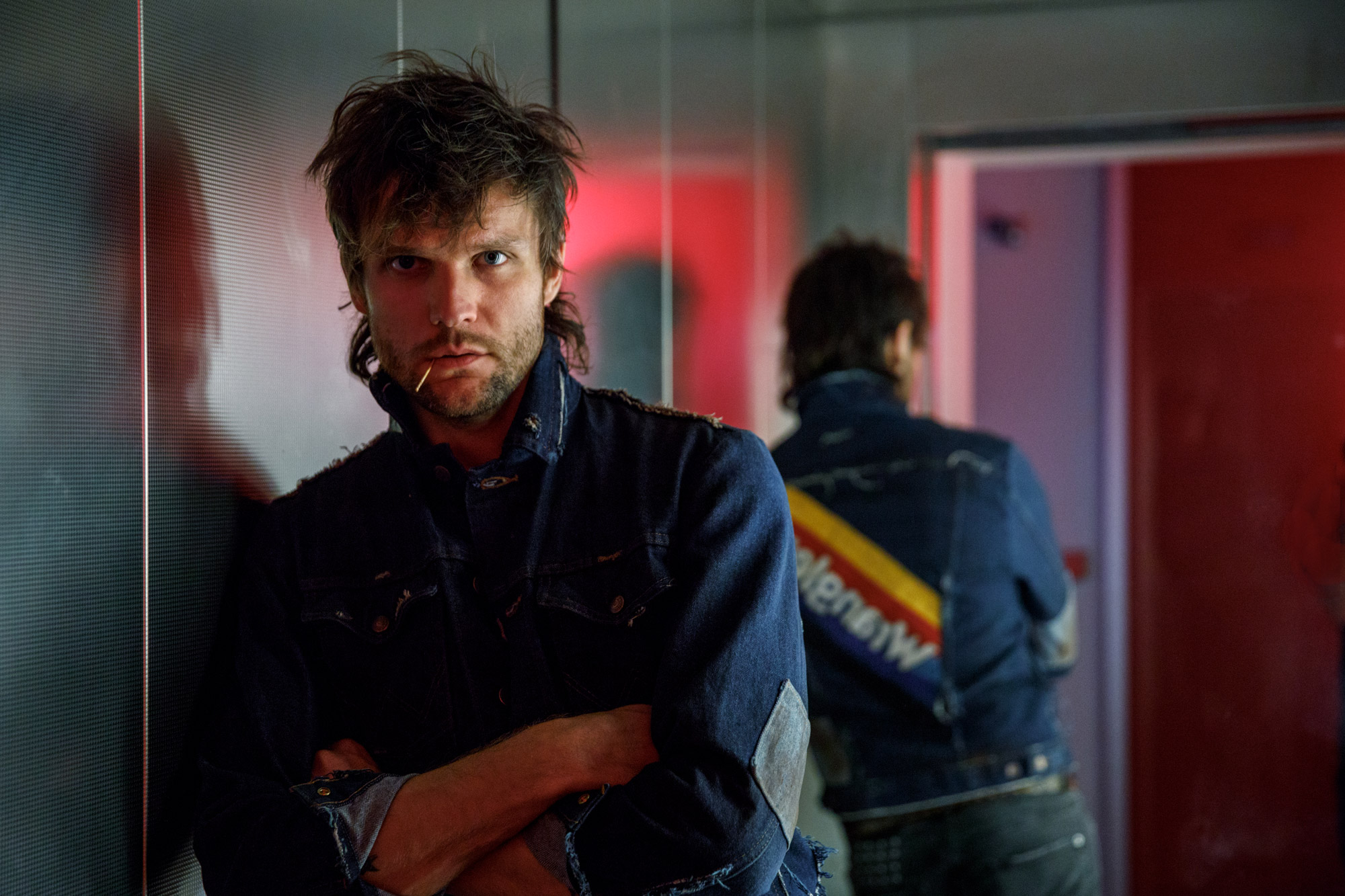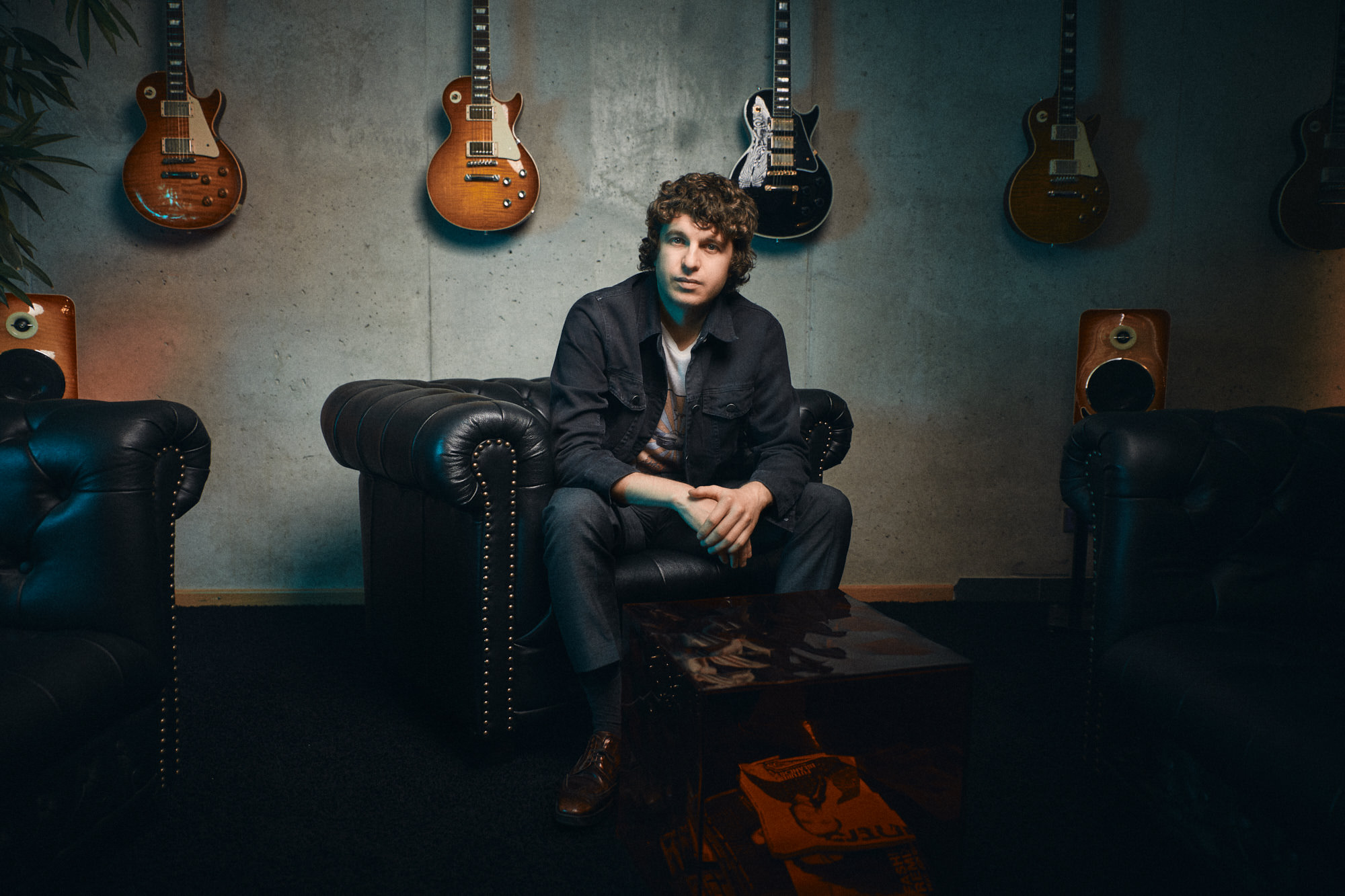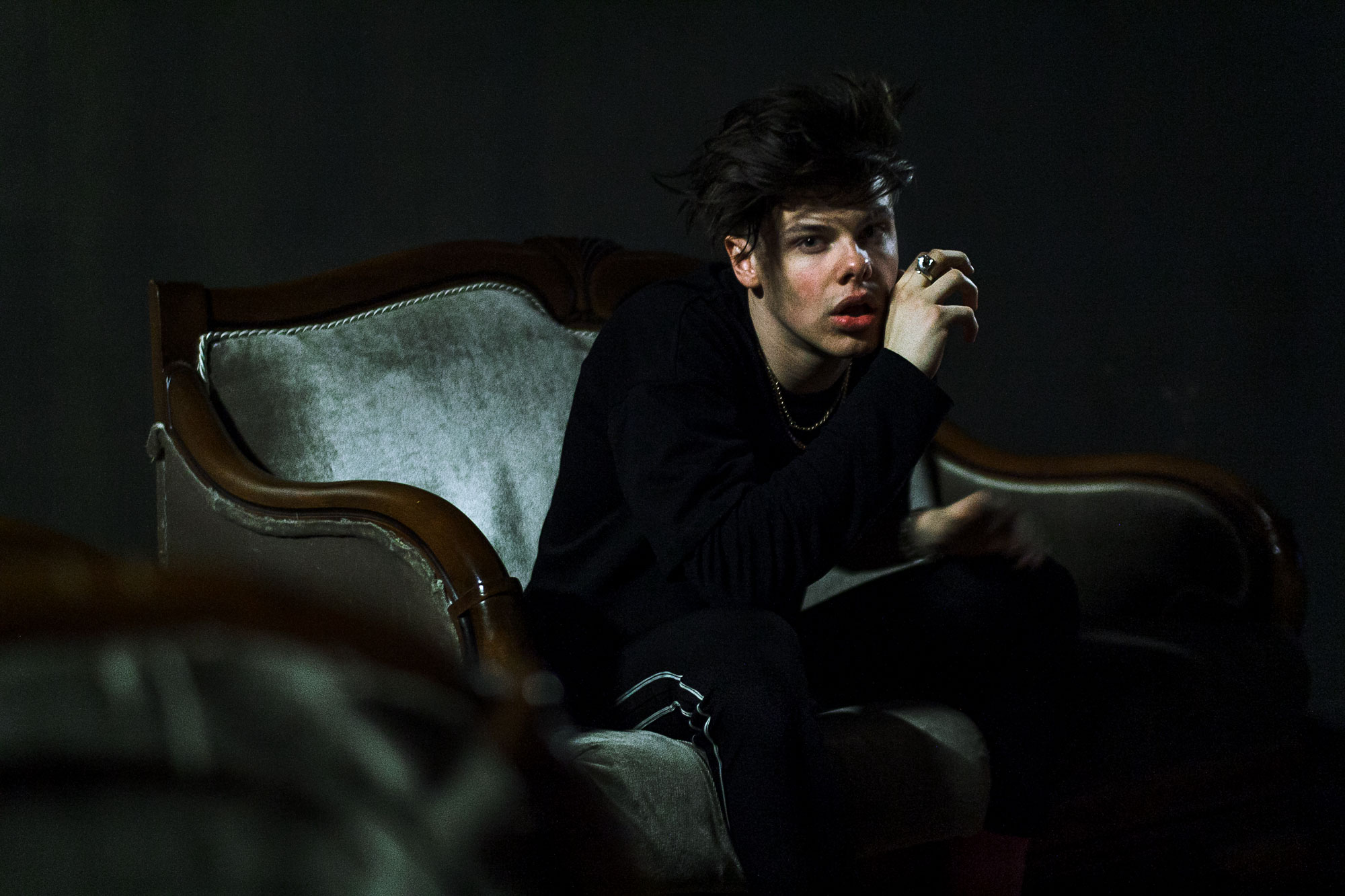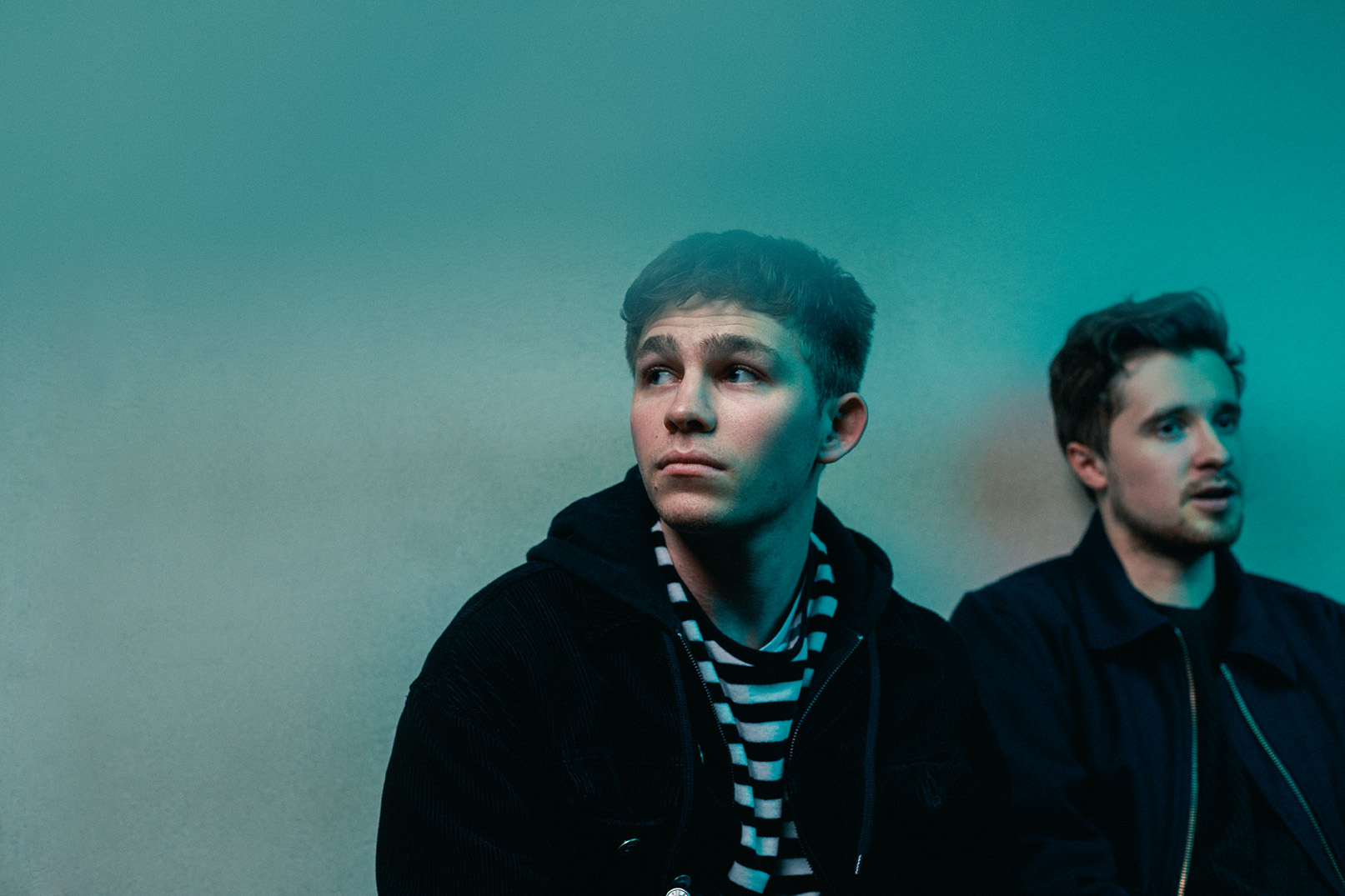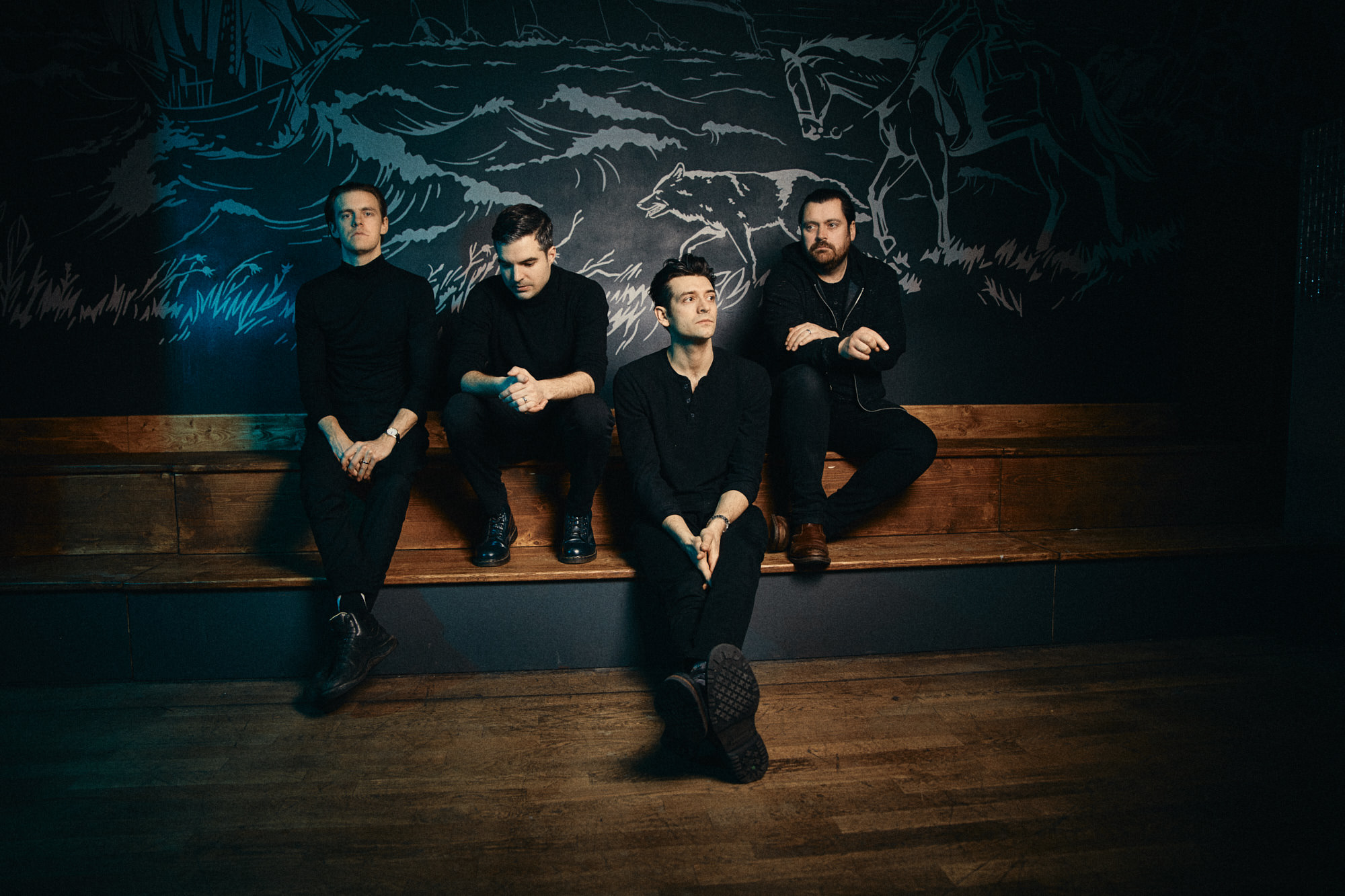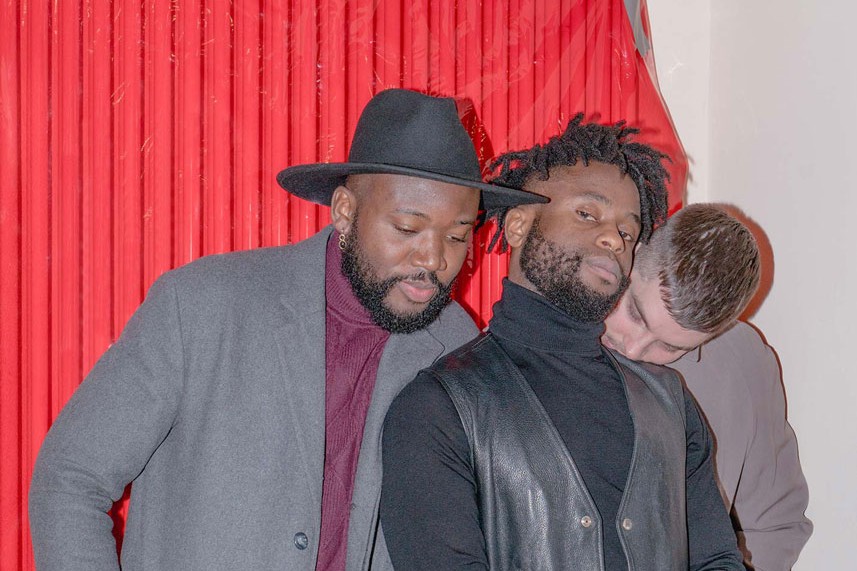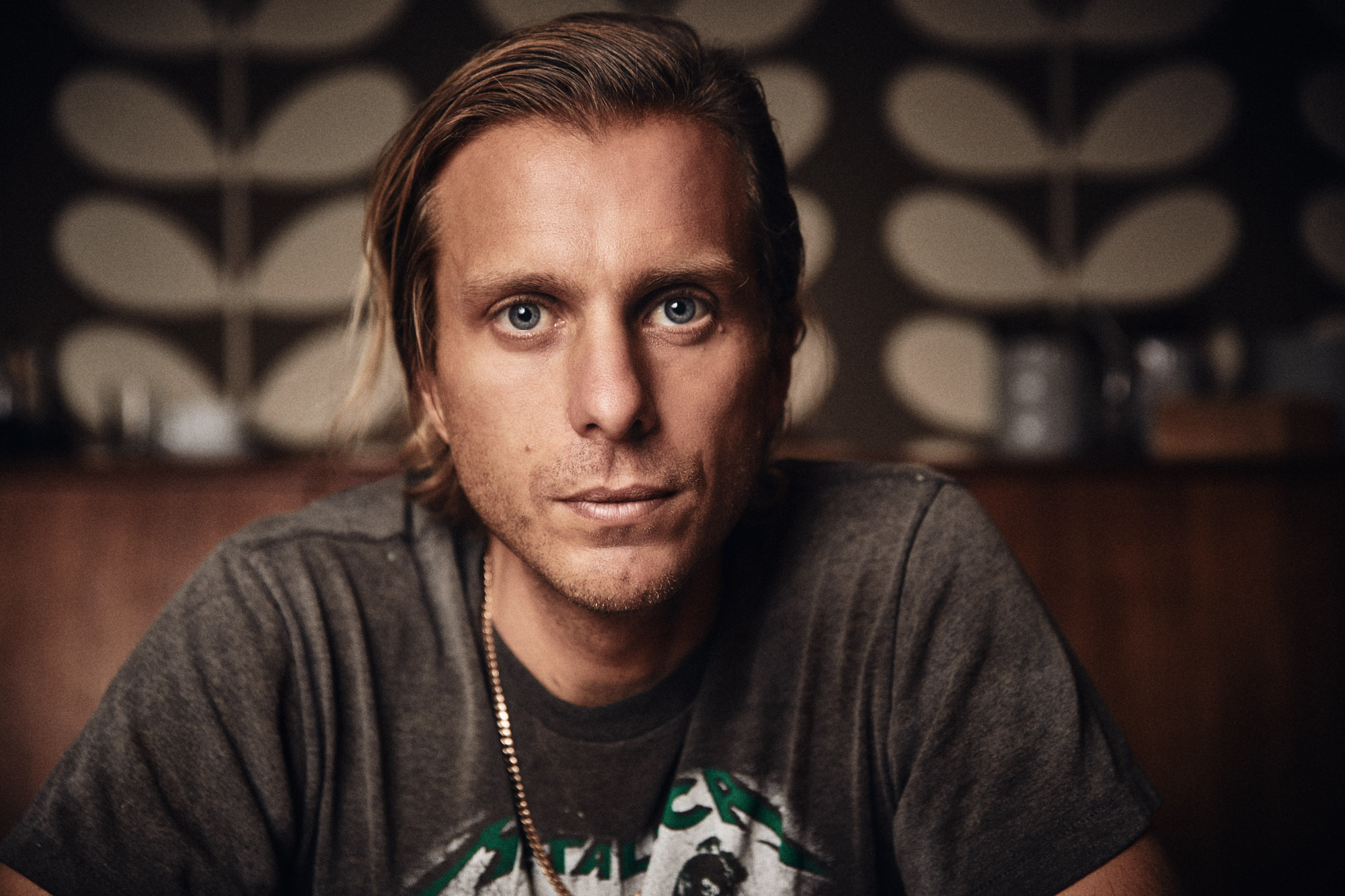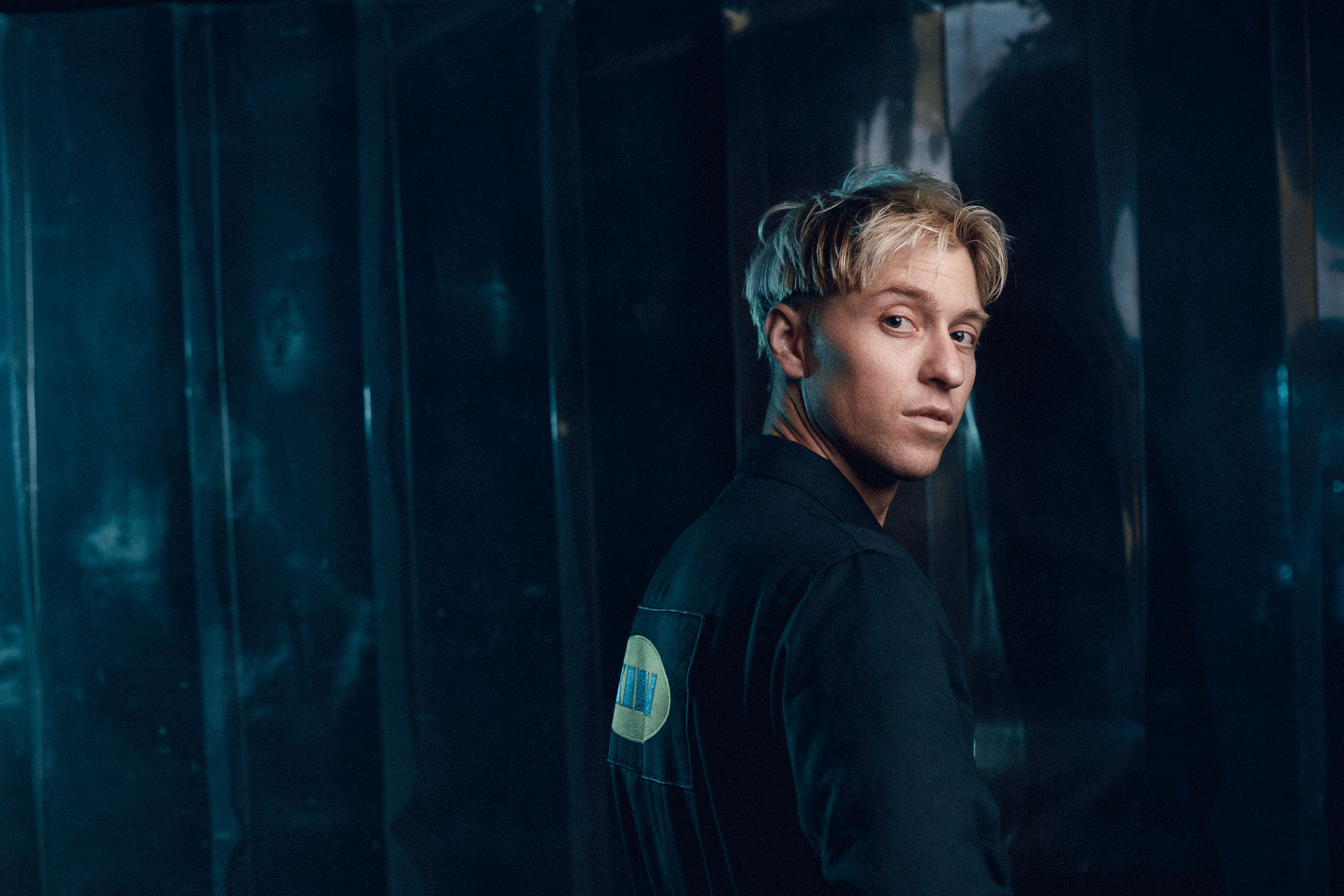Interview — Metric
Underlining The Black
Last Friday Canadian rock band Metric released their new record, “Art Of Doubt”. Lead singer Emily Haines explained to us why doubt is one of the most important human instincts—and why people sometimes wonder if the band is having dinner together.
26. September 2018 — MYP N° 23 »Instinct« — Interview: Jonas Meyer, Photography: Maximilian König
“If you would be a real seeker after truth, it is necessary that at least once in your life you doubt, as far as possible, all things.”—What French philosopher René Descartes noted almost 300 years ago, sounds so simple and all-comprehensive. But let’s be honest: not every one of us feels good with questioning the world. The thought of doubting—especially doubting everything—causes most of us some kind of discomfort. But why’s that? Why are we more inclined to look for security than to permanently redesign our lives and environment? Have we made ourselves too comfortable in the status quo?
Emily Haines, lead singer of Canadian band Metric, believes that the process of doubting is urgently necessary because it can bring some sort of healing. With the band’s new record, “Art Of Doubt”, Metric keeps an energetic and wise plea for a creative questioning of everything—a plea that motivates you to get off the couch and do something. We met Emily at SoHo House Berlin for an extensive interview, a few days before releasing the new record.
»All the statistics are showing that people are more and more lonely and unhappy.«
Jonas:
There is a photographer’s saying, I don’t know if you’re familiar with it, but it says that “black and white reduces a photo to its essentials”. In early July your Instagram feed started to turn into black and white, with just a little blue here and there. Reducing your band’s imagery to black and white, does it mean that you want to focus more? Or do you want your audience to focus more?
Emily:
I like the idea of the essentials—an idea of stripping everything away and going back to the source. That definitely feels representative for us. But it’s also just a stylistic choice and a lot of the sonics on the album are referencing our past and also, you know, early days of rock music and punk music that has inspired us. So, it’s definitely about authenticity and grit.
Jonas:
The latest music videos you released for your new songs “Dressed to Suppress” and “Black Saturday” are filmed in black and white, too. Besides that, the “Dark Saturday“ video seems extraordinary for another reason—because of the way it was edited: the video shows a split screen, with four single storylines of you and the other guys of the band. Although you’re united on one screen, every one of you seems a little lonely when striving around in the wee hours of the morning. Is loneliness a danger you have to deal with in your job as a musician?
Emily:
I think it’s an occupational hazard, yes, but it’s something we’re all grappling with. It’s quite well documented that—as our supposed quality of life improves and as we are surrounded by more and more stuff—all the statistics are showing that people are more and more lonely and unhappy, which is kind of ironic. So, I feel you and I agree.
»That’s where being self-obsessed can lead you: to a pretty dark place.«
Jonas:
In this video, you’ve worked together with award-winning director Justin Broadbent…
Emily:
… Justin did a great job with that video because he really captured that feeling that we’ve all had had of just sitting around alone with your phone. It’s like the most depressing thing, and Justin just combined those moments where the four of us are united momentarily, but everyone’s very focused on themselves—and that’s where being self-obsessed can lead you: to a pretty dark place.
Jonas:
It’s interesting anyway: Today you see everywhere people sitting at tables, two or three people, and they’re not chatting with each other, they’re chatting with someone else on their smartphones…
Emily:
It’s sad, isn’t it?
Jonas:
How did you find Justin Broadbent and how did this idea come up?
Emily:
We have an incredible crew of people in Toronto. There’s a really thriving art scene in the neighborhood where our studio is, and Justin has already done videos and artwork for us: we worked with him on our album “Synthetica”, he did the video for “Sick Muse” from the album Fantasies”, so it was very natural. He has a really good rapport with us that’s all about spontaneity and collaboration. For my solo album “Choir Of The Mind” we did that whole campaign together: visuals and everything. He’s just someone that is very much part of the community.
Jonas:
The “Dark Saturday” video was produced with an iPhone and that’s something that would not have been possible 20 years ago when you founded the band: the first smartphone with a camera was released in the 2000s, I guess. What do you think? What impact has the evolution of technology had on your music and on your career as a band in the last 20 years? Or is there even an impact?
Emily:
Well, there’s definitely an impact. We’re very fortunate to have straddled those eras when we were starting out to put up a poster and people came to your show.
Jonas:
Good old days!
Emily:
Yeah! You know, massive multi-million dollar careers were made before this new world that we live in…
Jonas:
…by people like Justin Bieber who got discovered on YouTube?
Emily:
I wasn’t thinking about him. He’s definitely part of the current reality. I’m talking about bands like The Eagles. Back then, everyone was able to not only function but thrive previous to this. But somehow now you just can’t exist without existing in that digital world. So, I think we’ve done a good job of adapting. We’re incredibly adaptable and it’s partly because we run our own company because we refused to be buried by the changes. And you know, that’s not true for everyone, but we’re fortunate. We have a very small and driven team, we just embraced the changes together.
»Somehow now you just can’t exist without existing in that digital world.«
But just to put it in perspective: the day that we released our album “Pagans In Vegas”, Apple went to streaming. Not only did they go to streaming, they just announced that they were going to not pay their artists for three months. That almost destroyed our whole company. I mean, can you imagine? Well, we adapted to streaming, to everything else, but it’s not true for everyone. And that was particularly brutal, just from a pragmatic standpoint. The model forever has been: you make a record and spend a few hundred thousand dollars producing it, and then you put it out and people buy it. That equation is no longer in place, and it’s so surreal. We now spend even more maybe paying producers, buying equipment, making something really of the best quality we can. And then it’s just like “here you go” on the internet. That’s just so retrograde, but we’re embracing it.
Jonas:
A couple of weeks ago we met The Kooks’ frontman, Luke Pritchard, for an interview. He told us that today, in his opinion, only rich people, or people with rich parents, are able to make music—because you can’t afford it otherwise. Do you agree?
Emily:
I mean, yeah! I don’t know how people do it. In our case, we started with nothing, and you know this is what I mean: it’s been 20 years now, or 15 with all four of us, but there’s a work ethic there… It’s a tricky question actually, because The Strokes, for example, were also rich kids.
Jonas:
He said when he grew up, being in a band was a working-class thing, mentioning the Gallagher brothers, The Beatles and so on…
Emily:
Yeah, and I suppose that’s true and that’s how we feel, too. A lot has changed and will continue to change. That’s the other thing we have to remember. And that’s positive, too. Everything’s in flux.
Jonas:
I found an interview with you from 2013 where you said your “favorite thing was not being in a video”. You also said that it’s a strange medium. Is it still your opinion? And if yes, what makes it a strange medium to you?
Emily:
I’m trying to think of the context it would’ve been.
Jonas:
It was in Toronto at the Music Festival in December 2013 after you had released a video for “Lost Kitten”.
Emily:
Oh, that makes sense! Ok, yes. Because I love that video…
Jonas:
…because of the colors and the extraordinary actor?
Emily:
Yeah, and the idea of making someone else a star. I do enjoy it, but in that context that makes sense that I would have said that. It depends on who I’m working with and if it’s a good story. And I like it, you know, but I came into music to be a sound, not a model.
»Doubt is the origin of science and the arts and poetry and everything we know.«
Jonas:
In the same interview, you were asked to describe Metric in one word and you said “love”. James answered “family”. Would you still say the same word when asked again?
Emily:
Uhm, yeah! Maybe more so in fact because of the producer that we worked with on this new record, Justin Meldal-Johnsen. He came in and said: “I see the four of you for who you are as a band. I remember you from The Silverlake Lounge in L.A. in 2003, I’m determined to get you on tape as the live band that you are—and as the four individuals that you are.” For every moment of making the record, every single person was in the room to one hundred percent, and it continues to amaze me. Our friendships evolve, everyone individually evolves, and when we come back together, it’s fresh. You know, there are bands out there that don’t even have dinner together, but we do. Sometimes people ask: “Wow, you guys have dinner together?” Of course, we do! We played with The War on Drugs just a couple days ago, headlined a festival with them in Vancouver, and we were so excited, like, just to connect with another band. I’m a huge music fan and that was always part of the incentive for me to meet all these other artists.
Jonas:
Another big word that has recently become pretty important to you is the word “doubt”. I mean, you’ve dedicated an entire album to it: your new record “Art Of Doubt”. Is doubting a human property that is more positive or more negative?
Emily:
More positive. I would say it’s the origin of science and the arts and poetry and everything we know—because we’ve questioned: What’s in the sky? What is the world made of? Doubt and questioning are the heart. That’s where all the good stuff happens.
»Views are shifting all around the world and politicians are exploiting fear.«
Jonas:
Sometimes Canada seems to be the opposite of what’s going on in the United States. Is it a Canadian property to be more reasonable or doubtful?
Emily:
Possibly… and if so though to me, it’s not really related to the album that we made. Partly because we’re an unusual mix. The drummer and bass player are American, I’m dual, Jimmy was born in England and so we’re kind of this mixed bag. We consider ourselves a Toronto band at this point, but it’s, you know, I think we all want to romanticize places and people.
The political climate in Canada is also difficult. We just selected a premier in Ontario, it’s like a governor’s position, who is a doppelganger for Donald Trump. You know, views are shifting all around the world and politicians are exploiting fear. So, in fact, it’s the opposite of doubt. It’s that they’re like exploiting a sort of arrogance or a sense of entitlement in people as opposed to a sense of looking and examining at the world realizing you’re just one part of it. I feel like the world is really in a questioning moment, but I think we could use a little more doubt that these leaders have our best interest in mind they’re scapegoating a certain group of people. I think that’s a good sign that somebody is full of shit. You know, they’re like: “I’m gonna scapegoat that guy and then cut taxes for another guy!”
Jonas:
In the press kit we got there’s a quote related to your song “Dressed to Suppress” and let me repeat it: “Lyrically, the song explores the maze of conflicts we encounter in our attempts at finding and holding onto love; the absurd mating rituals we routinely perform.” I immediately had to think of all these technologies we use today to find someone we can love. Do you think our behavior becomes even more and more absurd with all these technologies or is it such a timeless human thing, this strange behavior of finding someone?
Emily:
I think it’s probably the latter. Like, technology definitely doesn’t seem to be helping. I think that those fundamental desires are still the same. It’s just sort of saddening somehow that there’s this sense that the tools that are supposed to help people are actually just amplifying the sense of distance and insecurity and paranoia. Is there anything more nightmarish than being in love with someone, then breaking up and then having to watch them parade their life through your Facebook and Instagram? I’m luckily not in the position of having to endure that…
It’s interesting when you think about the people who created this technology. They are all like deeply anti-social people, who needed these tools and it’s an interesting thing to reflect on and take ownership of. Then there’s the rest of us. And by the rest of us, I mean you and me being able to have this conversation and anyone who’s capable of human interaction without all of those crutches. It’s like there is a lack that’s being exploited. But for those of us who don’t feel that lack and are capable of connecting as humans, there’s no responsibility to adapt to this and enlarge that lack, right? It’s like: “Oh, sorry that I’m not sitting here communicating with you through fucking Bumble.” I can actually be like: “Why don’t we just kiss?” If you’re that way, it’s heartbreaking to me that someone feels that they have to become more robotic to be modern. Meanwhile, there’s a super babe sitting across from them at the table, and they are just looking on Tinder for a match with her.
»My writing process is excruciating, I go very deep, it’s very isolating, and I bring really slow heavy songs to the studio: the most honest I can be, the most doubtful and damaged and vulnerable.«
Jonas:
Listening to your new record is like someone showing you the very shady sides of yourself and simultaneously kicking you in the ass and giving you so much energy to change your life. It’s like a big “Get off the couch and do something!” So, I would also call your new record the “Art Of Motivation”, wouldn’t you?
Emily:
Oh, interesting. In fact, it’s something we’ve been talking about in the band. We wanted to be distilling down what it is exactly what we do. Justin Meldal-Johnsen could sense that and really honed in on that for this record.
There’s something very special that is only us in every record we make, whatever the sonic choices, it’s a certain feeling that we try to follow. We don’t know what it is until we find it and then we say: “That’s us!” And I think it’s exactly that. My writing process is excruciating, I go very deep, it’s very isolating, and I bring really slow heavy songs to the studio: the most honest I can be, the most doubtful and damaged and vulnerable. And then we speed that shit up and make it really loud so there’s the motivation and the urgency. It’s not loud and energetic because you’re ignoring or avoiding. It’s because you’re…
Jonas:
… underlining?
Emily:
Yeah, underlining the black! It’s taking the most difficult thing, being honest about it and then just getting the fuck up and changing it. The crazy thing is that this is actually my experience with being in this band. Really painful times that I have expressed in my work have led me to then find myself in front of thousands of people with all this energy. It’s the kind of case in which it works: it works to energize the most unpleasant realities.
Jonas:
When you look back at your 20-year-long history of making music: what was your biggest motivation to keep doing that?
Emily:
Making music has always pulled me forward to never give up and to never succumb to what to me is the pull of depression, which is just waiting for me all the time. And I think we get tricked into thinking that you should ignore it, but I say go towards it and make art out of doubt. You don’t presume, you don’t put on overconfidence exploring and it’s a lie, you know.
More about Metric
ilovemetric.com
facebook.com/metric
instagram.com/metric
twitter.com/metric
#metric #emilyhaines #mypmagazine
Photography by Maximilian König
Interview by Jonas Meyer


